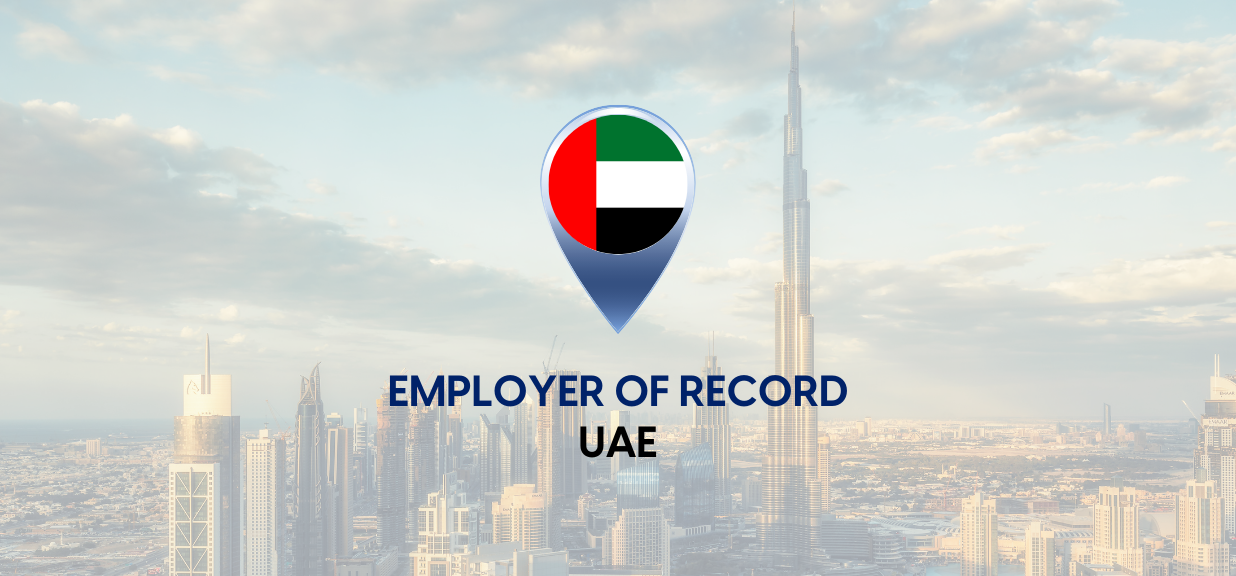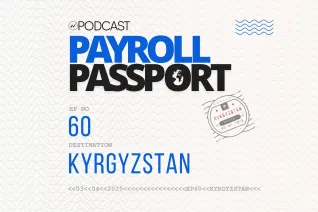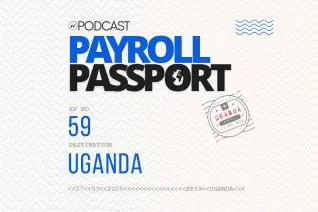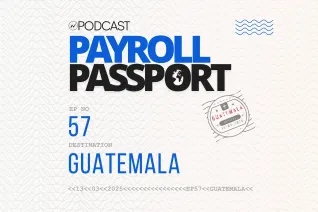Country Spotlight: Employer of Record in UAE

With over 80% of its population being expatriates, the UAE presents an unparalleled opportunity for companies seeking to tap into a global talent pool. However, navigating the intricate landscape of employment laws and regulations in this dynamic nation can be a daunting challenge for organizations that do not possess local expertise.
The United Arab Emirates stands as a house of diversity and opportunity in the Middle East, offering a unique blend of cultures and a diverse pool of talents that can take businesses to new heights. This is where an EOR service becomes an essential asset in your global expansion plans and aids in navigating specific local compliance laws.
Emirati Etiquette: Understanding UAE Labor Laws
The UAE's labor laws are strictly bound and encompass employment contracts, workplace safety standards, and employee rights. Non-compliance with these regulations can result in significant financial penalties and legal ramifications. Recent changes like the Wage Protection System (WPS) have added another layer of oversight to employment practices in the country.
The WPS was launched to ensure that employees in the UAE were paid fairly and promptly. The system monitors wages through its database as employers are mandated to upload their wage files onto the database, and the respective government officials validate and check this data.
One of the benefits of using an employer of record is that it does not require the empire to take on additional responsibility for staying updated. The EOR stays updated on evolving regulations through continuous monitoring and expert legal counsel. They can implement compliance management systems that conduct regular audits, track regulatory changes, and automate reporting requirements. This proactive approach minimizes legal risks and ensures adherence to UAE labor standards.
ALSO READ I The Employee Experience Revolution: Global Payroll for an Engaged Workforce
A Golden Oasis: Taxation in the UAE
While the UAE is renowned for its tax-free environment for individuals, there are still various other fiscal considerations for employers. These include social security contributions for Emirati employees (typically 12.5% of the salary), various work permits and visa fees, and potential Value Added Tax implications for certain business activities. UAE also possesses two free zones, Dubai and Abu Dhabi, with separate employment legislation as well.
Neeyamo's global payroll services can navigate the nuances of the UAE's fiscal system. The payroll engine can be calibrated to handle the intricacies of social security calculations, automate the processing of government-mandated fees, and generate detailed financial reports compliant with UAE regulations.
Sun, Sand, and Schedules: Working Hours in the UAE
In the UAE, the standard workweek is 48 hours per week, typically split across six days, with an average of 8 hours per day. Overtime compensation is mandated at 125% of the regular hourly wage or 150% for work performed between 9 PM and 4 AM.
Using a time tracking system such as Neeyamo’s ensures precise recording of regular and overtime hours. These systems can be customized to align with UAE-specific regulations, automatically calculating overtime premiums and generating comprehensive reports for compliance audits, ensuring that your reports are cohesive and accurate.
YOU MAY ALSO BE INTERESTED IN I Ensuring Global Payroll Transparency for Increased Employee Satisfaction
Your Oasis in the Desert: UAE Leave Benefits
Maternity and Paternity Leave
UAE labor law mandates 60 days of maternity leave for female employees, with 45 days being paid in full and half pay for the remaining 15. There are also provisions for extended unpaid leave in certain situations. 2020 saw the introduction of a 5-day paternity leave entitlement for fathers, to be taken within six months of the child's birth.
Neeyamo Absence can be configured to automatically calculate leave for employees, track leave balances in real time, and generate alerts for specifications, ensuring full compliance with UAE labor laws.
Annual Leave
Employees in the United Arab Emirates are entitled to 30 days of paid annual leave after completing one year of service. Additionally, employees receive public holidays off, including religious observances such as Eid al Fitr and Eid al Adha, which follow the Islamic lunar calendar and require careful planning and last-minute changes. Neeyamo’s solution can aid in factoring in UAE-specific holidays, including the variable dates of Islamic holidays, and ensure that the burden of calculating these does not fall upon the employer.
Desert Diplomacy: Cultural Nuances for UAE Employers
UAE provides various considerations for its Emirati population, such as emiratisation. It is a government initiative specifically designed to increase employment opportunities for Emirati citizens within the country's workforce. Private sector companies with 20 - 49 employees are required to hire at least one employee and must hire at least two by 2025.
The government also provides financial incentives and support to companies for hiring and training Emirati employees. An EOR can streamline this process by handling recruitment, HR, and payroll, ensuring compliance with Emiratization quotas and labor laws.
Neeyamo's advanced global payroll and EOR services offer a comprehensive solution to simplify not just your regulatory and compliance burdens but also your expansion into the UAE market. Our platform combines expert knowledge with cutting-edge technology to provide a smooth, compliant, and efficient global employment experience.
Don't let regulatory complexity hold back your global ambitions; partner with Neeyamo by reaching out to irene.jones@neeyamo.com to unlock the full potential of the UAE's talented workforce while ensuring seamless compliance and operational excellence.
Latest Resources
Stay informed with latest updates
If you're curious and have a thirst for knowledge pertaining to the HR, payroll, and EOR universe, don't miss out on subscribing to our resources.

















